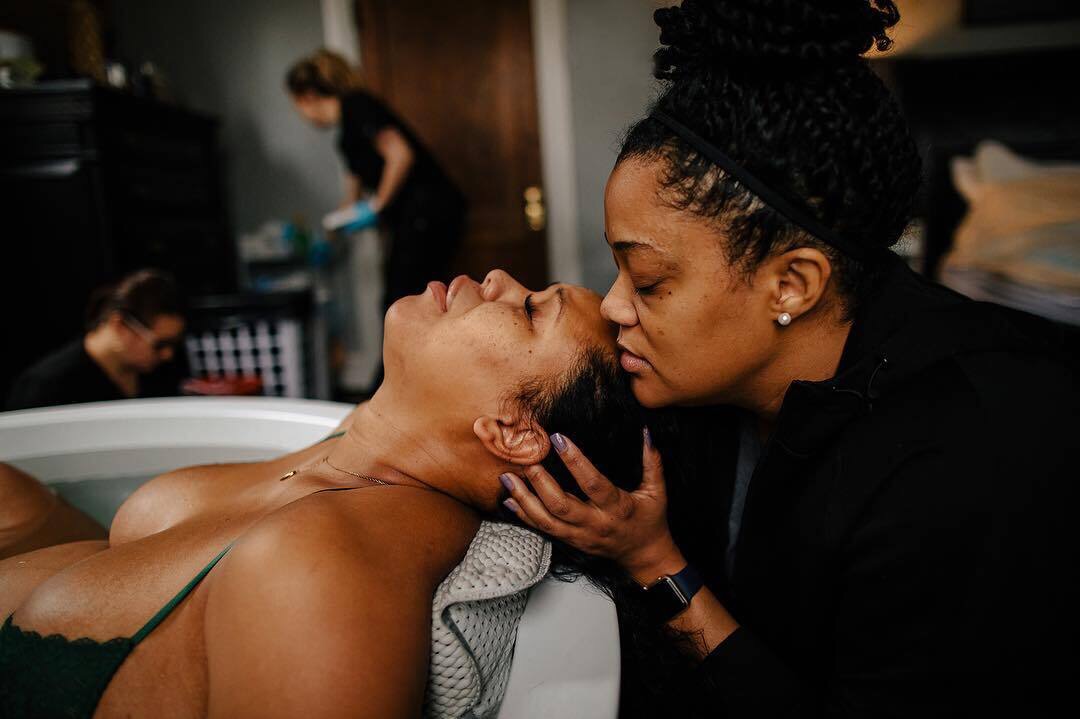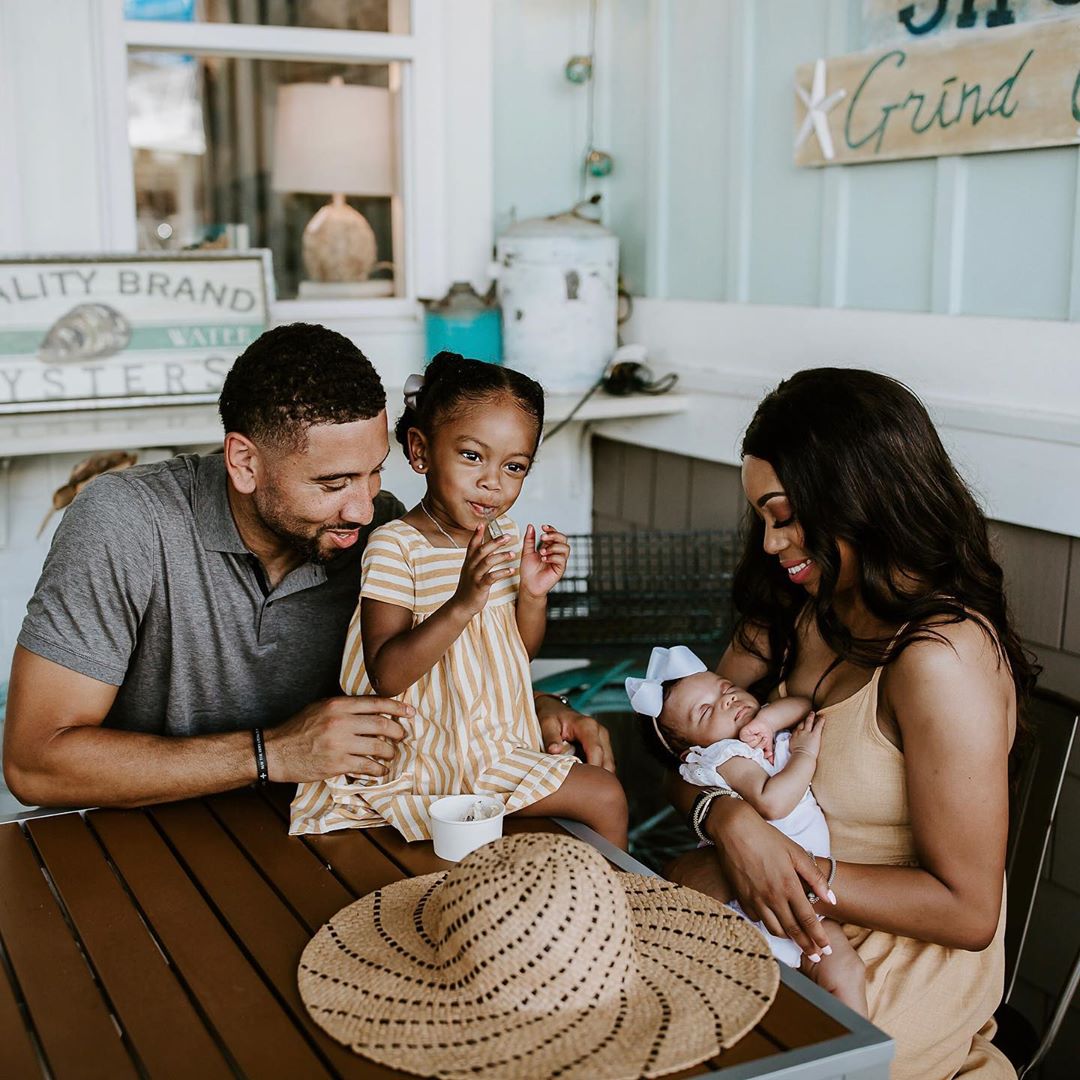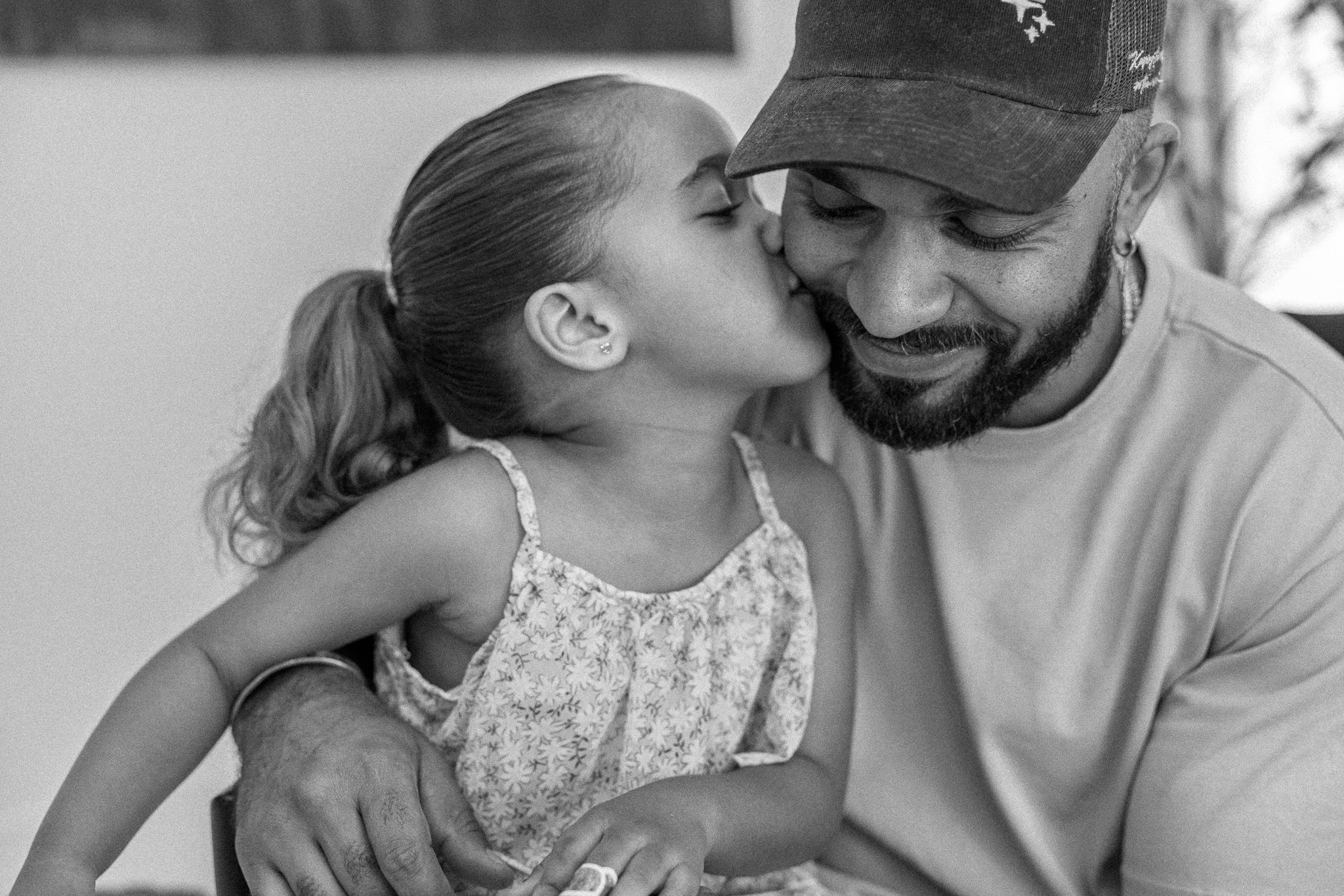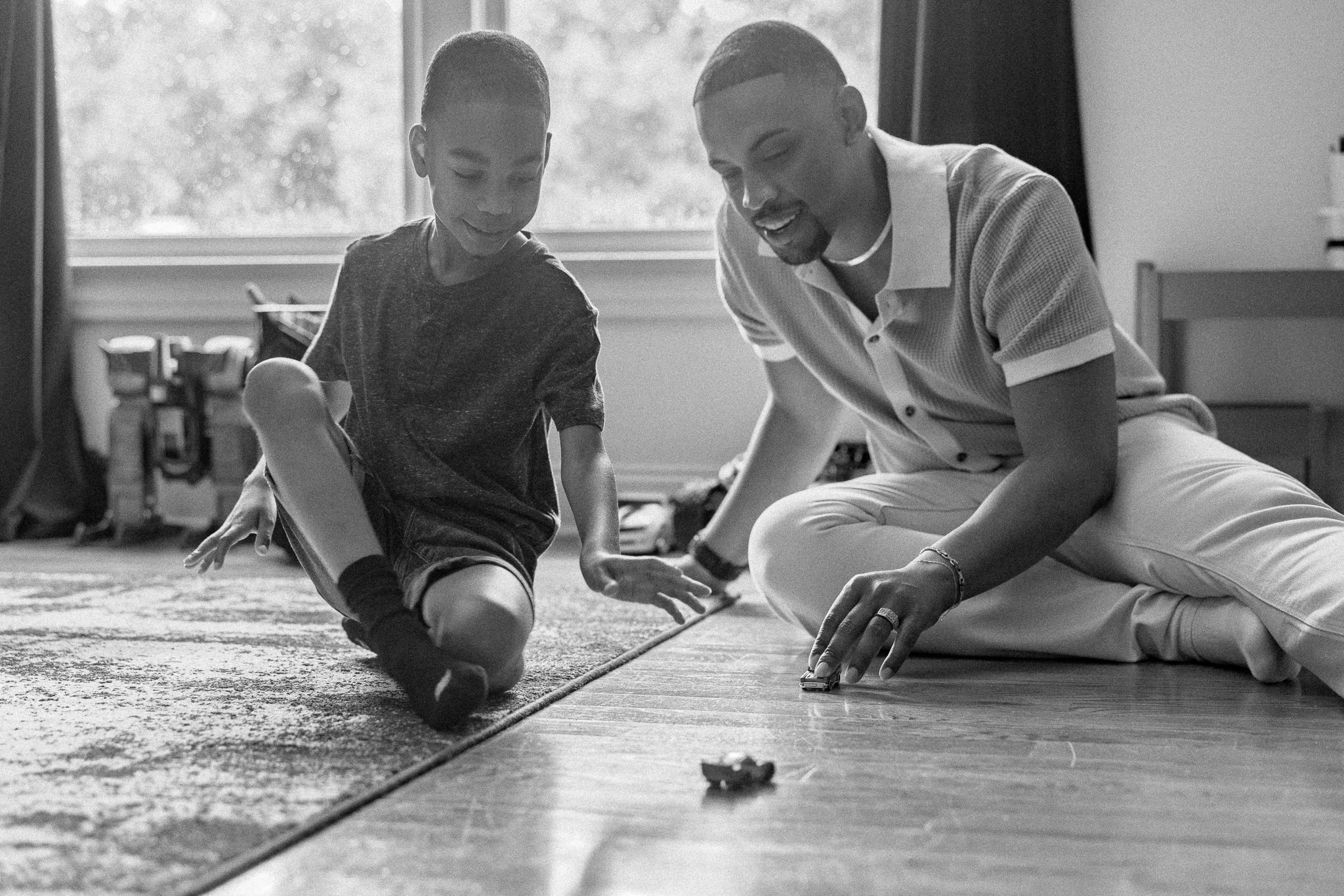
Photo courtesy of @rebornfromwithin
Photo courtesy of @rebornfromwithin

Tracie Collins, CEO & Founder of the National Black Doulas Association (Photo courtesy of Tracie Collins)
Black Maternal Health Week is here! Black parents, expecting parents AND medical and holistic healthcare providers, should be sharing resources every day. And thanks to the Black Mamas Matter Alliance, we have an annual opportunity for swapping stories and tips that may help generations of Black parents. Black Maternal Health Week is a time to deepen the national conversation around Black maternal health and equip expecting Black mothers, and those family planning with empowering options when it’s time to have a baby.
So, what is a doula and what do they do? blacklove.com spoke with the CEO & Founder of the National Black Doulas Association, Tracie Collins, to deliver doulas 101 directly to you!
blacklove.com: Tracie, what is the National Black Doulas Association, and why did you create it?
Tracie Collins: I founded the NBDA because Black women have been dying up to 4-5 times the rate of our counterparts when it comes to childbirth or childbirth-related causes. We train Black doulas as well as connect Black doulas with Black birthing families to provide support and help lessen the Black maternal mortality rate.
Related: Impacting the Black Maternal Health Crisis by Being Informed
BL.com: How has the NBDA grown over time?
TC: It started as an online directory where Black doulas can list their business or doula practice. We have members throughout the country, including Puerto Rico and a member in Germany. Now we offer five different certifiable trainings as well as professional business development, coaching, and mentorship opportunities. Also, we are launching a digital magazine this year and so much more.
BL.com: Why did you become a doula?
TC: 20 years ago, I trained as a doula, and it was my stepping stone to becoming a midwife. It allowed me to gain birth experience that further added to my value when I sought out my midwifery apprenticeship. However, after gaining all of the experience I needed to sit for my board exam as a CPM (Certified Practical Midwife), I decided the field wasn’t for me due to California laws. At the time, the laws did not make it easy for midwives to practice.
Being a Black woman in America, I didn’t want to jeopardize anything that could potentially take me away from my children. So, I utilized everything I learned as a midwife and brought it into the doula world. I was able to marry it successfully by supporting so many families with a holistic approach to western medicine. As a result, I was able to have several clients’ births unmedicated and with rapid deliveries.

Photo courtesy of @rebornfromwithin
BL.com: Can an expecting family work with a doula and a doctor or is using a doula only for people giving birth at home or a birth center?
TC: Yes. Absolutely! For everyone’s safety, it’s best to work with both no matter where you choose to birth.
BL.com: Can you help us understand why it’s important to have both?
TC: The doctor or midwife is there to handle the entire medical process, such as checking vital signs, cervical exams, listening to heart tones, especially if any complications should arise. They make sure the birthing parent and baby remain medically healthy throughout pregnancy, labor, and delivery.
A doula is a non-medical, trained professional who provides mental, informational, and physical support for birthing parents and beyond.
The doula, on the other hand, is focused on your preparedness by ensuring the birthing family has a clear understanding of the entire prenatal, labor, delivery, and postpartum process. There are various labor approaches based on the birthing family’s wishes and preferences. Overall, doulas are there to make sure mental, emotional, and physical support are provided throughout the entire process. Many doulas are available via email and text 24/7 to answer questions and concerns.
For those birthing in a hospital setting, the doula is the one who’s developed a rapport with the birthing family. She understands the reasons for their preferences, and she is the gatekeeper who helps usher and guide the birthing process. The doula is a highly trained person who can identify potential issues and help avoid them as the labor process commences. She also stays with the birthing person one to two hours during the immediate postpartum period. As well as doing one to two follow up visits but sometimes more based on what services the doula is providing.

Photo courtesy of @carmen.bridgewater
This is to make sure the birthing parents are supported during that period of postpartum, which is often underestimated. During this time, the doula is looking out for signs of potential postpartum depression, breastfeeding support, and providing overall healthy suggestions as the family adjusts to their new normal. She completes all of their visits both pre and postnatal in the home, except for delivery unless it’s a home birth. The doula provides these services no matter where the birth takes place. Everyone on the birth team has a role to play in support of the same common outcome—a successful, healthy delivery.
BL.com: What’s the difference between a doula and a midwife?
TC: A midwife is a licensed medical professional whose services include delivering babies. A doula is a non-medical but professionally trained person who provides physical, emotional, and informational support for birthing parents before, during, and after childbirth. That’s the best way to simplify it.
Related: Black Obstetrician/Gynecologist Dr. Jessica Shepherd on the Importance of Maternal Health
BL.com: With Black women dying at alarming rates during and after childbirth, hospitals can feel like a scary but necessary place for expecting Black parents. For those that aren’t interested in home and birth center births, what suggestions do you have for them to have the best pregnancy and birth experience possible?
TC: Get a doula, first and foremost and take a childbirth education class. Many are even offered virtually, especially now. Research the best birthing facilities and their statistics on your geographic region.
Ask questions of providers, including but not limited to:
—What’s their policy around medical induction?
—Do you work with a team?
—Do you have any certified nurse midwives on your team?
—Can I meet your team?
—What’s your C-section rate?
—When and why would a C-section be required to recommend?
—How do you and your practice feel about having a doula present?
BL.com: Can you explain the many types of doulas out there and what they do?
TC: Birth Doula – A birth doula is professionally trained to support the gestating family through pregnancy, labor, delivery, and immediate postpartum.

Courtesy of @brittfusilier
Postpartum or Fourth Trimester Doula – This type of doula is professionally trained to work with a recent birthed family from 0-3 months postpartum. They are experts to help identify and offer assistance in breastfeeding, sleep support, nutrition, mental and emotional wellness, physical healing, and assist in easing the transition of the growing family structure.
Holistic Fertility Doula – A holistic fertility doula is professionally trained to support a woman during her preconception period to help prepare her body for pregnancy. She provides natural remedies, recommendations, emotional support, and guidance during this time.
Also, they are educated to look at varying factors prohibiting conception and have the ability to make necessary recommendations in specific areas to enhance the chances of fertility. There is no time limit in working with a woman during this period, unlike other aspects of doula work. It’s also worth mentioning that holistic fertility doulas are not responsible for pregnancy outcomes.
Black women are taught not to value themselves or their level of expertise, which leads to not feeling confident in requiring fair compensation.
Sex Doula – A sex doula is a coach or a healing guide that helps one sexually reconnect with themselves by walking them through the elements and styles of healing around sexual-spiritual health. They are there to help you regain a sense of newness after a period by feeling disconnected from one’s body. A sex doula can work with individuals or couples to help guide and strengthen their sexual awareness to gaining newfound freedom. They do not perform intimate acts with clients. However, they provide techniques and avenues to help facilitate healing around sexual energy.
Abortion Doula – An abortion doula is a professionally trained companion who is not a healthcare professional but supports another individual through significant health-related experiences, such as a miscarriage, induced abortion, or stillbirth.
Death Doula – A death doula is a person who assists in the dying process, much like a doula does with the birthing process. They aim to help families cope with death by recognizing it as a natural and important part of life.
BL.com: We’ve heard that many doulas, especially Black doulas, have to have another job to sustain themselves. How on earth are these women on call for pregnancy and childbirth AND have another job! In addition to their own families?
TC: This is very true, and that’s for several reasons. Black doulas are often not patronized at the rate of our counterparts. They are often considered the “community doulas.” Unfortunately, Black women are taught not to value themselves or their level of expertise, which leads to not feeling confident in requiring fair compensation.
This is a business, and like any other business, it takes a lot to get it off the ground. However, when you have further odds stacked against you, it makes it much worse. So yes, they work to make ends meet until they can take the leap into full entrepreneurship of birth work, but even then, it’s risky. They have to have a support system in place, and we know how hard that can be when, frequently, Black women are the nucleus of their family structure.
BL.com: Tracie, thank you for sharing your resources with us! Where else can we find you?
TC: You can find us at Blackdoulas.org, the Healthy Black Girl Podcast, and on all social media platforms including, Instagram @nationalblackdoulas and Twitter @BlackDoulas.
Related Articles
Bozoma Saint John talks Black motherhood, grief, self-love, and finding joy again. Don’t miss her powerful conversation on building legacy and living boldly.
Tyler Lepley shows the beauty of Black fatherhood, blended family life with Miracle Watts, & raising his three children in this Father Noir spotlight.
Black fathers Terrell and Jarius Joseph redefines modern fatherhood through love, resilience, unapologetic visibility in this Father Noir highlight.
Featured Articles
When Elitia and Cullen Mattox found each other, they decided that they wanted their new relationship together, their union, to be healthier and different.
Celebrate their marriage and partnership with the release of the documentary “Time II: Unfinished Business”
The vision for our engagement shoot was to celebrate ourselves as a Young Power Couple with an upcoming wedding, celebrating our five year anniversary - glammed up and taking over New York.
Meagan Good and DeVon Franklin’s new relationships are a testament to healing, growth, and the belief that love can find you again when you least expect it.
Our intent is to share love so that people can see, like love really conquers everything. Topics like marriage and finance, Black relationships and parenting.
HEY CHI-TOWN, who’s hungry?! In honor of #BlackBusinessMonth, we teamed up with @eatokratheapp, a Black-owned app designed to connect you with some of the best #BlackOwnedRestaurants in YOUR city – and this week, we’re highlighting some of Chicago’s best!











